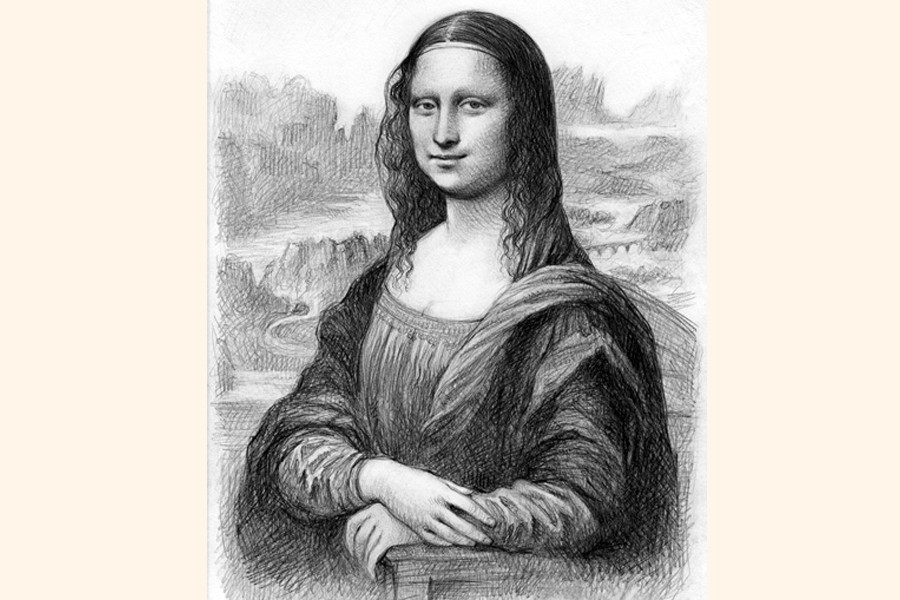A young mother holding her child's hand turns round the corner of the lane. The child, four or five years old, clearly does not like to surrender his brief life of freedom outside and get confined so soon. But his elder brother - older by two to three years -has already positioned himself before the iron gate of the first house from the corner they approached it. As the woman tries her key to unlock the gate, the younger brother moves a little away in the direction from which they came. The mother and her elder son get in with one part of the gate left open for the little one to enter. But the kid does not; instead, he closes the gate from outside. His brother and mother discover his mischief and open the gate once again and usher him in. The little one obliges surprisingly without demurring.
All this happened in a moment. The moment is unforgettable not for the dimensions it has but simply because of the younger child's innocent mischief, his love for the momentary freedom outside of the four walls. He wants to demonstrate he is old enough to respond to his instinct which does not necessarily ask him to comply with orders or concede to the elder people's wishes. Already a personality himself, the child creates a moment with a difference. He demonstrates his sense of oneness with Nature.
Our lives are full of moments. But not all moments are memorable but some are. In the Western concept there is no such thing as 'pal' 'anupal' originating from ancient India. The millisecond is a modern concept. So, just a speck on the eternal flow of time (pal or anupal) can be most valuable to a person without conditions applied.
People are often heard to say that to meet the country's head of government or state is the proudest or most memorable moment. Others would consider shaking hands of their sports icon or most favourite film star the moment of their lives. Indeed, they fulfil through such meetings or handshakes an unfulfilled desire and feel so happy and proud to narrate it to others.
However such moments are savoury tinged with a sense of pride. As if they want to say, "Look how important I am that I was favoured to meet the top politician or dream star of the entertainment world." Sure enough such meetings -even if those are chance ones - can satisfy one's ego profusely but are those the most treasured moments from which there is no expectation except pure delight?
Artists and cameramen capture the finest moments they come across. When Leonardo da Vinci painted Mona Lisa, the most important thing he highlighted is the subtle and mysterious smile on her lips. The woman is not exceptionally beautiful but what has given her the immortality is the nearly imperceptible but still so unmistakable and undefined smile. Mona Lisa's greatness lies there. The transient moment thus becomes eternal.
In the Ode on a Grecian Urn, John Keats describes the sculpted picture of a lover in pursuit of his beloved. He is so near to his goal yet so far. The moment of closeness and detachment -- no matter the unfulfilled desire -- is etched permanently on eternity. Such is the power of creativity of artists and sculptors. The important thing is to give the impermanence of a moment a permanent shape.
Photographers also try to do the same. With their inner eye, they look for moments of joy, despair, anguish and the subtle transformation of expression of a face or colour. Some do this with love but others do so for a livelihood or reward. When dew drops are captured hanging a grass blade or a paddy sheaf, eternity merges into a freckle of a moment.
For common people who cannot capture such moments on celluloid or canvas, their mind's eye is the only forte. They see the exceptional by chance and treasure those in the niche of their heart. A face suddenly flashes on the TV screen from among the packed stadium, a crowded place or from a running bus or train. It stays indelibly for the rest of life. Similarly, one does not want to see something ugly or ghastly but one has to. Equally there are things prohibited but somehow or other one sights one of those things by chance. It too stays permanently. Moments thus go to enrich life. Because their existence in time and space is short, they cannot be recreated but they leave a lasting, a nostalgic feeling.


